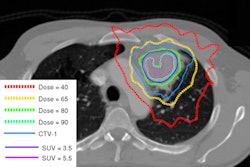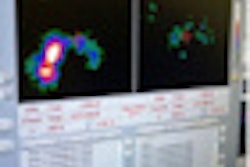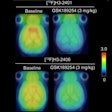European researchers say they have developed a clinical PET system with enhanced resolution and the sensitivity to detect breast cancer in its early stages.
With its early detection capabilities, the Mammography With Molecular Imaging (MAMMI) system is designed to help doctors begin cancer treatments one or two years earlier than usual, as well as evaluate a patient's response to chemotherapy.
Led by José María Benlloch, researcher for the Spanish National Research Council (CSIC) and co-director of the Institute for Molecular Imaging Instrumentation (I3M), the MAMMI project was created by eight European research institutions and companies, ranging from medical oncology and pharmacokinetics research to molecular imaging instrumentation, advanced image processing software, and integrated electronics circuit design.
The system images a patient while she is in a face-down position, with the breast placed into one of the openings in a specially designed table. The image is acquired with no compression of the breast, utilizing a ring-shaped detector that surrounds the breast.
The device currently is installed at the National Cancer Institute in Amsterdam and at the Technical University of Munich, where researchers have imaged more than 50 patients. Plans are to install the MAMMI next at the Provincial Hospital of Castellón.




















